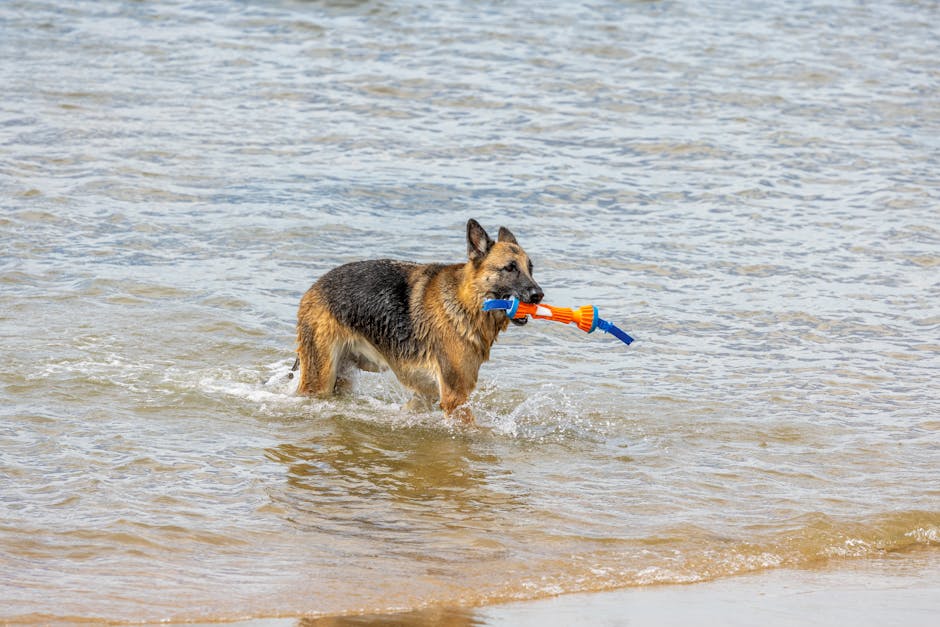Do Every Dog Has Rabies?
There are several conditions that can make it difficult to tell whether or not a dog has rabies, these includes;
No history of vaccination
Dog never tested for vaccine status
Owner does not have proof of inoculation
If you are ever faced with this situation, remember that it is important to avoid provoking the dog!
Also, try to stay calm and use logical reasoning to talk yourself out of attacking the dog.
No, all dogs cannot carry rabies

Contrary to popular belief, not every dog has rabies! Only certain breeds are considered potentially rabid, and only under specific circumstances.
Most dogs in America have never been exposed to rabies and therefore they do NOT pose a risk to you or your children. In fact, most people are probably more likely to get bitten by their own dog than be attacked by another animal of the same species.
Certain breeds like Doberman Pinschers, Rottweilers, and Great Danes can be dangerous if provoked, but this is very rare. These types of dogs have been known to attack for no reason.
It is important to understand that even if your dog does not seem aggressive towards other animals, it could still carry rabies and unknowingly hurt someone. This chance should always make owners consider getting rid of their pets.
It depends

Many people believe that every dog has rabies, which is why they call it the “cute disease”. This can have disastrous consequences for those dogs and their owners.
In fact, only some species of animals are known to be able to pass on rabies to humans. Canines are not one of them! That means if you want to enjoy the company of your beloved pet, then you should probably reconsider whether or not you should let it outside.
It may also mean that certain laws about owning dogs don’t make sense because the current definition of “canine” includes many things that aren’t actually capable of transmitting rabies.
So what is true? Well, according to the World Health Organization (WHO), only five mammalian species including bats, foxes, wolves, cats, and dogs getrabia when they bitespear with oral exposure.
This means that it isn’t totally accurate to say that all dogs have rabies. Some dogs just can’t transmit rabies through bite wounds!
Given this information, how do we know if our dog could potentially spread rabies to us? The best way to find out is by talking to your doctor and doing your research.
You should always vaccinate your dog

Recent reports of dogs that have been diagnosed with rabies are very alarming! While it is true that there has never been a documented case of a dog passing on rabies to a human, it is also important to note that most cases of humans being infected by rabid animals occur when people are bitten on the hand or wrist for several minutes before seeking medical help.
It can be tricky to determine if a dog has rabies at this stage as some dogs will behave abnormally after being exposed to other animals. However, if you believe that your dog may have rabies, then you should take him/her to the doctor immediately so they can test for the disease.
Fortunately, veterinary experts now recommend that all puppies and adult dogs receive two vaccines against rabies prior to exposure to prevent the spread of the virus. These vaccines are called the Puppy Series Vaccination and Canine Rapid Immunization Protocol (CRIP) vaccine.
While these vaccinations do not guarantee complete protection from rabies, they are good protections since repeated doses of the vaccine stimulate the immune system to produce antibodies that recognize the rabits Lyashchenko antigen.
You should not touch or kiss your dog

Many people believe that if they come into contact with saliva of another dog, then they will get rabied. This is false!
Rabies is an acute viral disease caused by a virus that spreads through animal bites and contacts such as saliva. However, before dogs were vaccinated against rabies, almost every dog had antibodies in their system which prevented them from being infected with other dogs’ viruses.
Because most dogs have these protective antibodies, they cannot transmit rabies to humans. Therefore, even though there may be some exposed skin after a few minutes, it is safe to wash this off because you would need repeated exposures to the animals’ blood for the infection to occur.
You should get your dog's medical history

Many people assume that if they can't find any health issues in their dogs physical exam, then their dog does not have rabies. This is wrong!
Rabies is a deadly disease which cannot be cured so it must always been treated with appropriate vaccinations. Even if your dog has no symptoms of rabies, she could still be contagious.
It is important to know about rabies for yourself and for anyone who might come into contact with your dog. It is also very expensive!
If you are wondering whether or not your dog has rabies, here are some questions to ask her doctor.
Does it show symptoms?

Even if your dog does not appear to be experiencing rabies, it is important to still check his or her teeth for signs of the disease. If you notice any changes in tooth shape, coloration, or position, this could indicate rabies!
Changes to the oral cavity are often seen early stages of rabies. At that stage, your dog may only have intermittent fever, lethargy, and difficulty chewing and swallowing.
It was reported that almost half of all people who died from rabies had no obvious clinical manifestations of the illness. Therefore, even if your dog appears healthy, it’s crucial to get him or her into veterinary care as soon as possible!
Fortunately, there are some simple ways to determine if your dog has rabies. While these tests cannot conclusively prove whether or not your dog has rabies, they can help rule out the condition.
If your dog shows any of the following behaviors, he or she should be brought in immediately for a more thorough exam.
What are the signs?

Another major indicator is when a dog has what’s called “tongue-lashing, growling or biting behavior.” This usually happens when a dog encounters another animal it doesn’t like or someone it isn’t familiar with.
A dog may also show these symptoms if it gets into a fight or is attacked by other animals or people.
What should I do if I suspect I have rabies?

If you are experiencing symptoms of rabies, your first action should be to call 911 or go to the nearest emergency room immediately!
Many people may think that only certain dogs can spread rabies but this is not true at all! Any dog can pass on the disease so even if yours does not seem sick, stay away from it until you know for sure whether it has rabies or not.
It is very important to recognize the early signs of rabies in animals so that you can take appropriate precautions. Unfortunately, most cases of human exposure to rabies occur because the patient was bitten by an animal they were trying to help.

